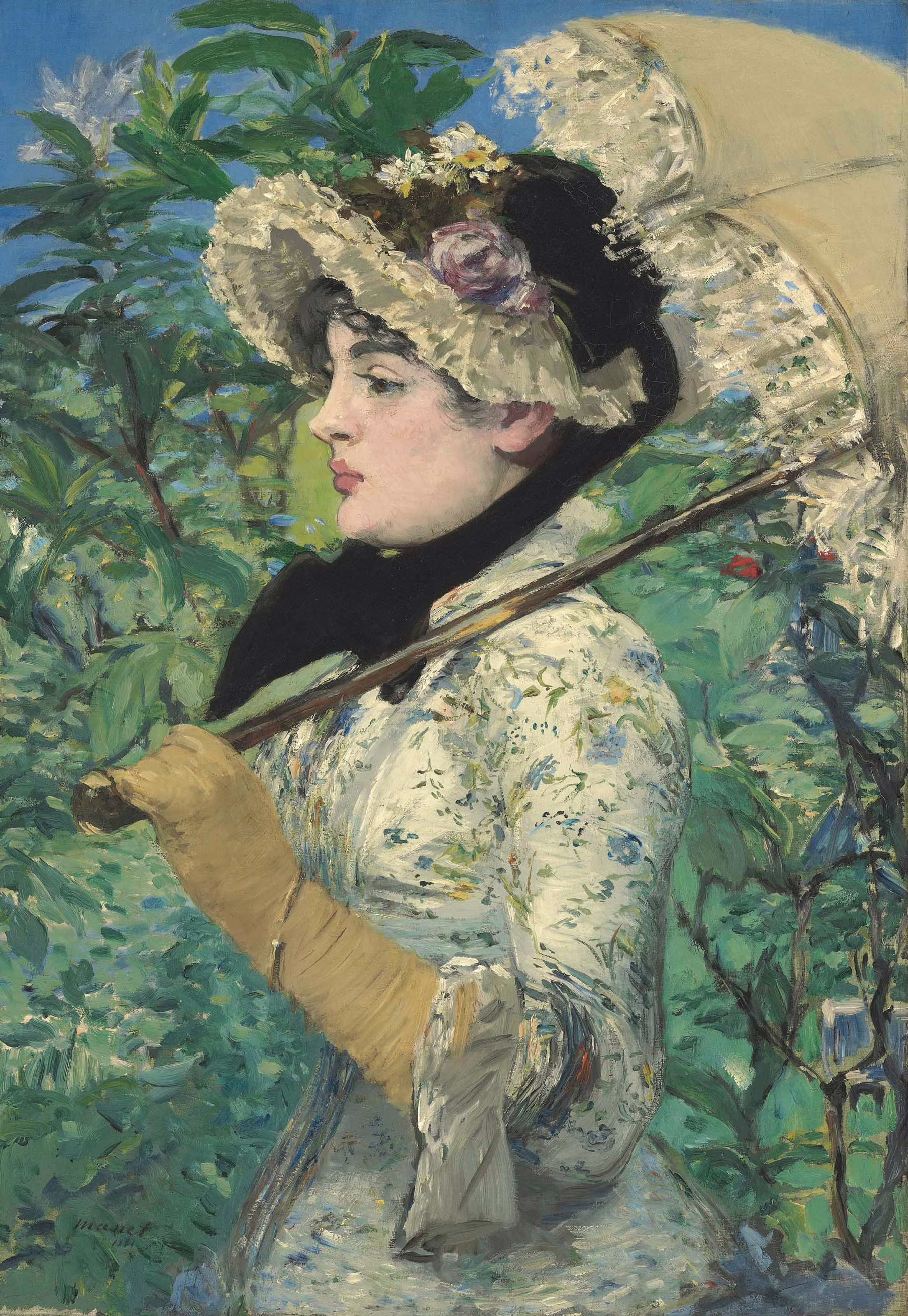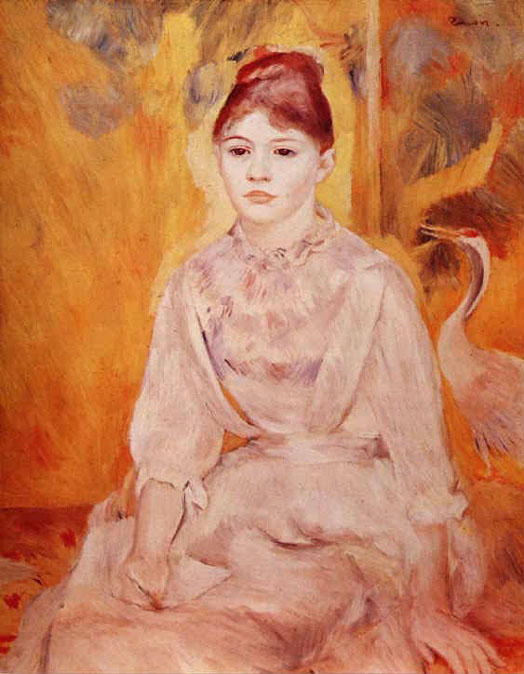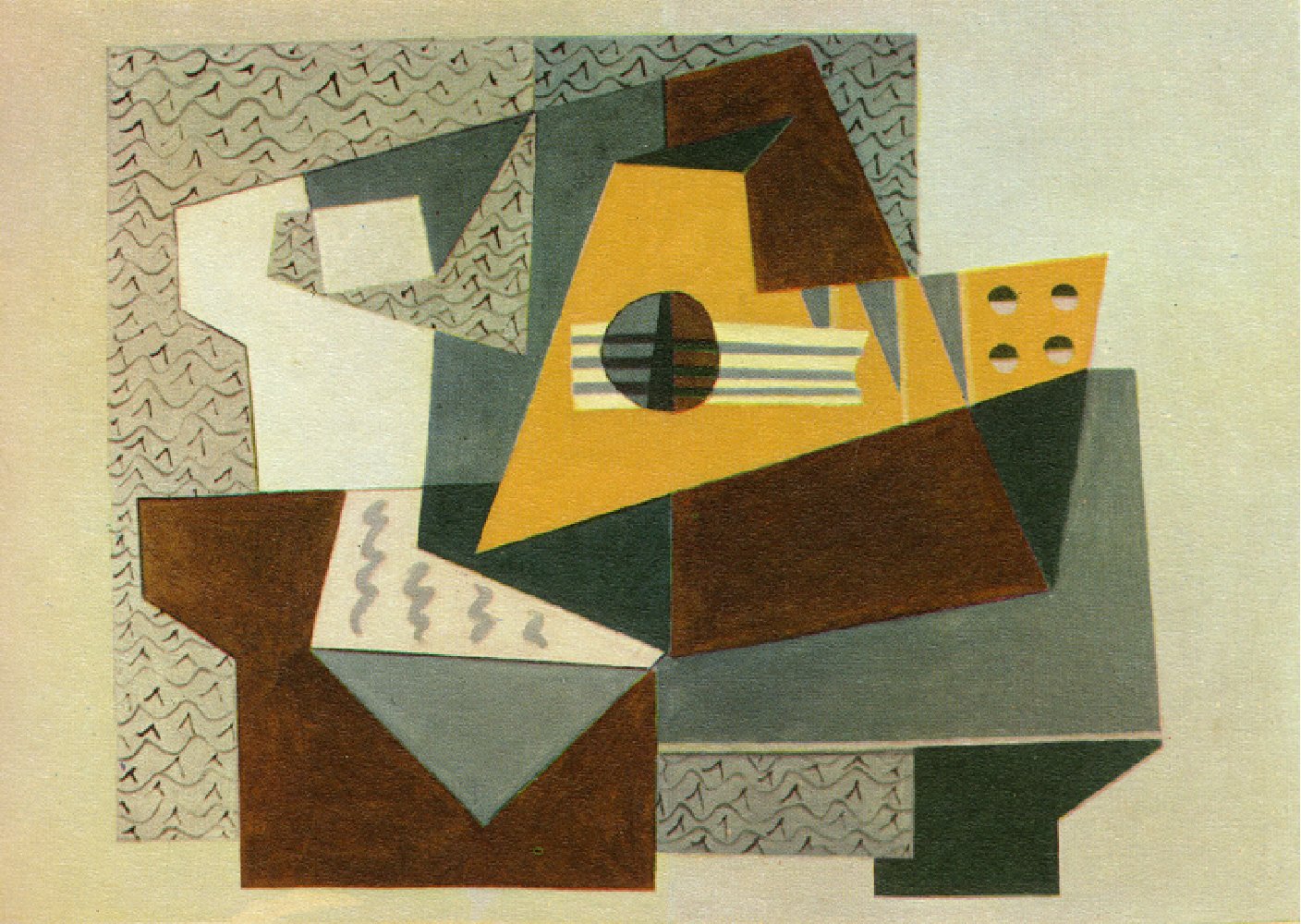Christie’s upcoming Evening Sale of Impressionist & Modern Art at Rockefeller Center on November 5 will be led by two pivotal works of the Impressionist and Modern movements – Edouard Manet’s Le Printemps (estimate: $25-35 million) and Fernand Léger’s Les constructeurs avec arbre ($16-22 million).
Fernand Léger’s Les constructeurs avec arbre, (estimate: $16-22 million), is an important example from the artist’s rarely offered and highly coveted Constructors series. Known as the “painter of the machine age”, Léger was captivated by themes of construction and engineering, using them in his work as a symbol of man’s creative power in an industrialized modern world. In the years 1949-1950, he painted Les constructeurs avec arbre, using it as the model for the what would become the final acclaimed painting in this series, Les constructeurs à l’aloès.
- The Constructor series is Léger's homage to the salt-of-the-earth working man, both as a class within French society and in the industrialized world generally, and as a more universal symbol of homo faber — man the maker and builder.
- The emphasis that Léger devoted to the configuration of the four workmen in this study resulted in this picture becoming the most strongly characterized of the large compositions in this series.
- At the upper left, one of the four construction workers perched on the girders of this building-in-progress is applying his muscular physique to the job. Two other men exchange greetings, and the fourth, perhaps a member of the architectural team that designed this structure, gazes dreamily away from the scene. This figure is thought to be Léger’s portrayal of himself as a young man.
Currently on an international tour to Asia and Europe, the top lot of the Evening Sale is Edouard Manet’s masterpiece portrait, Le Printemps (estimate: $25-35 million). Encapsulating all the major themes of the early modern period, from nature and femininity to society and fashion, Springtime is one of Manet’s best known and most widely reproduced works, and perfectly exemplifies the revolutionary style that Manet embraced.
- The portrait depicts the actress Jeanne Demarsy, cast as an allegory of spring. She also appears in the background of Manet’s iconic scene Un bar aux Folies-Bergere. Both paintings were exhibited at the Paris Salon of 1882, and together they sealed Manet’s fame as a titan of modern-era painting.
- This masterwork comes completely fresh to the market, having remained in the same collection for over a century and been on loan for the last two decades at the National Gallery of Art in Washington D.C. Of the 30 paintings that Manet exhibited at the Salon over the course of his lifetime, this is the last remaining in private hands.
- Proceeds from its sale will benefit a private American foundation supporting environmental, public health and other charitable causes.s.
- Click here to view the complete press release.
In keeping with growing demand for Surrealist works, particularly by René Magritte, Christie’s is pleased to present three important works by the Belgian master, each representing a distinct period and theme in the artist’s career.
- Mesdemoiselles de l’Isle Adam belonged to Gustave Nellens, owner of the seaside Casino Communal at Knokke-Le-Zoute in Belgium, who commissioned Magritte in 1953 to design the panoramic mural Le domaine enchanté.
- Monumental in size, Mesdemoiselles de l’Isle Adam, encompasses two of the artist’s signature elements, the nude female, and a blue sky, which Magritte fashions as both the background and the foreground with his dexterous use of cut-outs.
- Magritte painted L’ombre céleste in 1927, in the first of three years that he spent in Paris. Magritte’s time in Paris has been described as the most creative period in his career.
- This work was included in MoMA’s controversial and groundbreaking exhibition, Fantastic Art, Dada, Surrealismfrom December 1936-January 1937.
- L’ombre celeste was acquired by Beth Straus in the early 1960’s from the New Art Center in New York, with whom it remained until 1976, when the present owner received it by descent.
- The artist explained the title, La vie privée, saying “Every person has a private life which, on further acquaintance, can be perceived as through a window”.
Egon Schiele’s Stadt am blauen Fluss (Krumau), was executed in the summer of 1910, at a critical turning point in the artist’s career (estimate: $800,000-1,200,000) Schiele traded the claustrophobic confines of Vienna for the summer in favor of the Bohemian landscape, seeking to pare down his style of landscape painting to its most essential elements, just as he had with figure painting previously. The metamorphosis can be seen in 10 landscape paintings from that summer though the present landscape is one of only three outdoor subjects executed that year in non-opaque watercolor.
- Schiele visualized the scene from a bluff overlooking the Moldau River, gazing toward a bend in the river on the eastern outskirts of the medieval Bohemian town of Krumau.
- In contrast to the technique of post-Impressionist brushwork, Schiele allowed his fluid colors loose rein, contained within a framework of quickly drawn lines; the composition of Stadt am blauen Fluss is a startling demonstration of distance and space, stacked vertically in the flat modernist manner.
- This rare landscape represents one of the most stunning stylistic transformations to have been achieved in 20thcentury painting. Stadt am blauen Fluss is being offered for sale pursuant to the successful resolution of a restitution settlement agreement between the consignor and the Grünbaum Heirs, which allows for clear title to the work.
Among the other works to be sold
Impressionist :
Impressionist :
Cubist:
- GINO SEVERINI, Etude pour Autoportrait au canotier, charcoal, pastel and white and blue chalk on buff paper, 1912-1913, $1-1.5 million
















